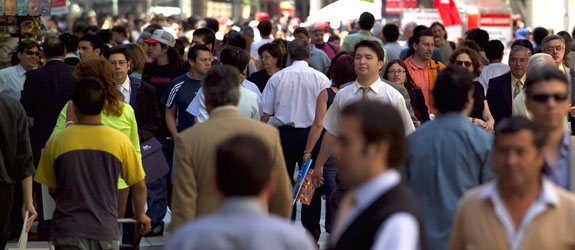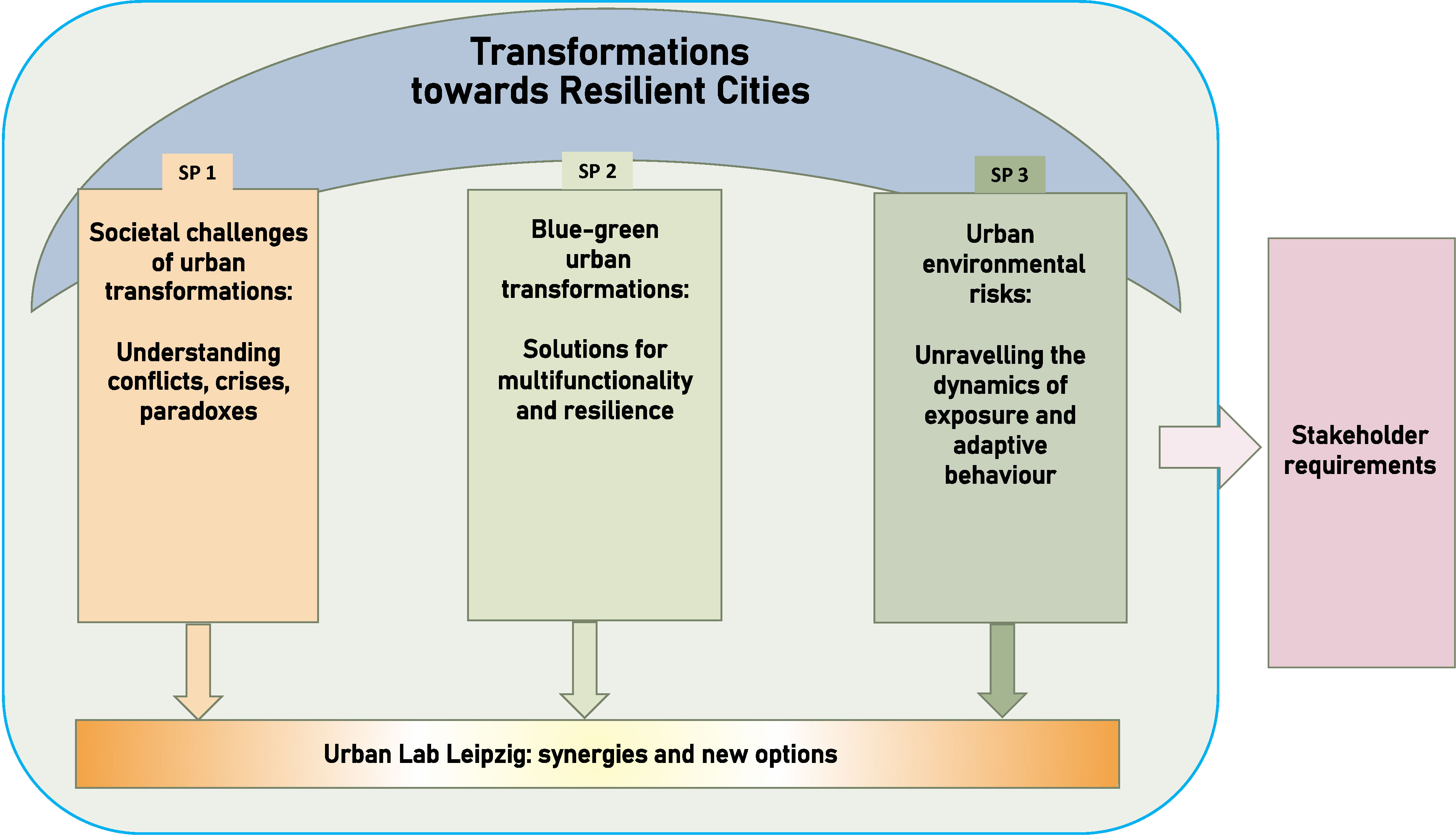
Transformations towards resilient cities
Platform Project − PP 6.4
Today, cities are the central living space of mankind. They are the hotspots of resource use as well as emission generation. Cities are thus drivers of climate change and at the same time its main victims, and they are currently facing a double challenge: they must become climate neutral and resilient. This requires rapid and profound changes.
More than half of the world's population now lives in cities, making them the most important habitat for people. Urbanisation and industrialisation have made cities hotspots of resource use, for example in terms of land, water, ecosystem services or energy. Cities are also hotspots for the generation of emissions, in particular greenhouse gases, waste and wastewater. As drivers of climate change, cities are culprits, and at the same time its main victims. They are particularly vulnerable to extreme weather events such as floods, heat and drought. Cities are currently facing a double challenge: they must become climate-neutral and resilient in order to preserve their ability to function and ensure the survival of their dwellers. This requires rapid and profound changes,so-called transformations.
In fact, many cities around the world have by now started to become climate-neutral and resilient. However, the necessary transformations are often not progressing to the necessary extent. The reasons for this vary: sometimes there is a lack of understanding of the threat posed by the climate crisis. Sometimes the relevant groups and interests cannot assert themselves. On top, there is also a lack of money and resources and, last but not least, a lack of know-how and sound knowledge. The goal of the transformations is known: Resilience and climate neutrality − but not the way to achieve it. Beyond, it is becoming apparent that classic growth targets, as still pursued by most cities, run counter to the goals of sustainable urban development, i.e. the two transformations.

We observe trade-offs, conflicts, contradictions, paradoxes and crises and recognise them as a decisive influence on the speed and course of transformations. As is evident, transformations are non-linear, they are characterised by crises and ruptures, they have contradictions and failures. The aim of our project is to develop a deeper understanding of how they can hinder and delay or promote and accelerate these transformations. We see it as our task to support cities in overcoming conflicts, crises and paradoxes on their way to resilience. To this end, we aim to develop solutions for multifunctionality and resilience in the context of blue-green infrastructures and decipher the dynamics of exposure and adaptive behaviour in the face of urban environmental risks. Through our inter- and transdisciplinary research, we will support the co-design and co-creation of transformations towards resilient cities. A central approach to this is our Urban Laboratory Leipzig which aims to bring together the different strands of research and transdisciplinary work.
Subprojects
Subproject 2: Blue-Green urban transformations: Solutions for multifunctionality and resilience
Subproject 3: Urban environmental risks: Unravelling the dynamics of exposure and adaptive behavior
